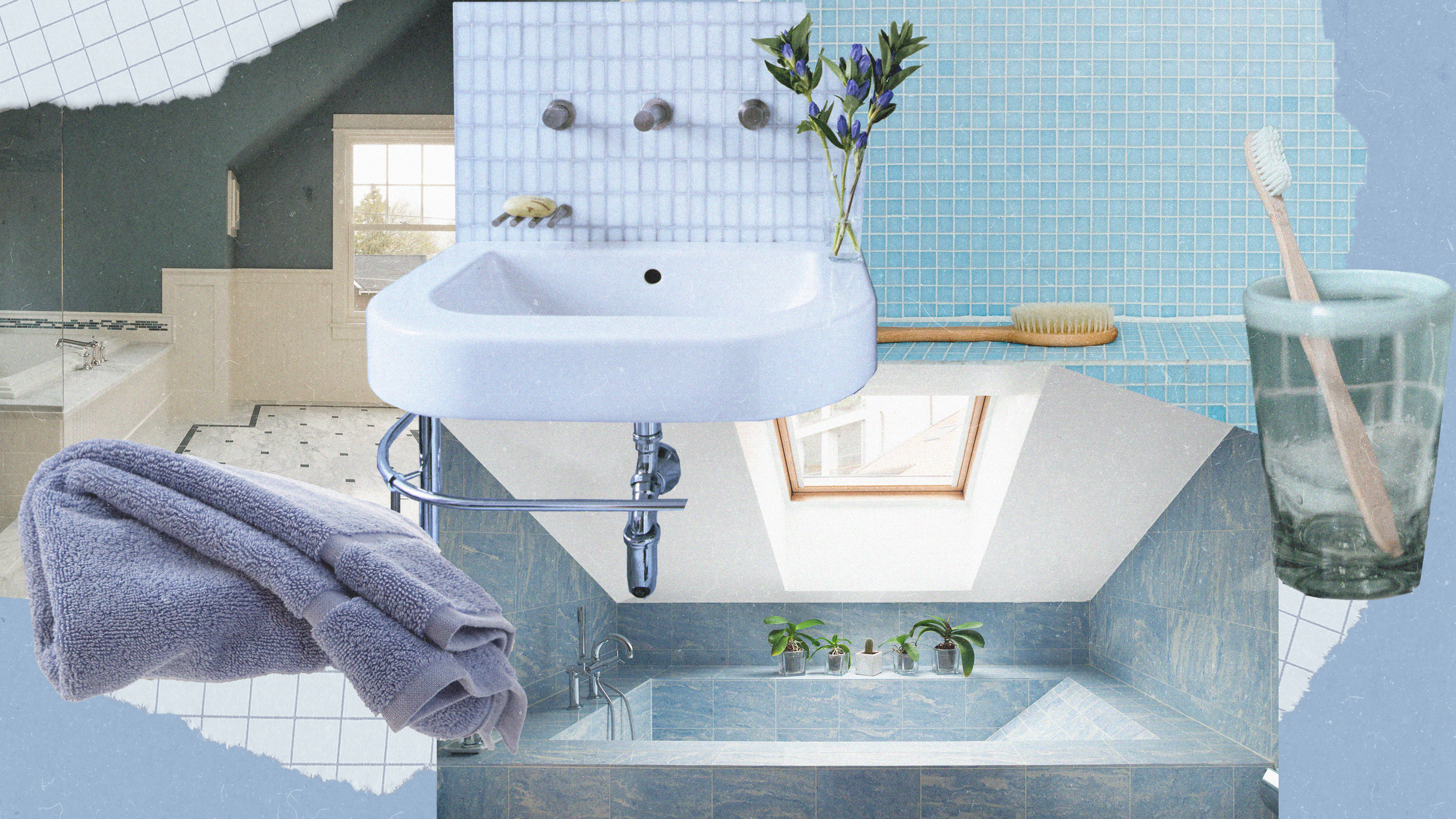There’s something special about the color blue—maybe it’s the expansive range or the magical way it transforms under natural light. We’re going all in on the blue bathroom just to prove just how versatile the hue can be.
From celebrity-owned properties to a designer’s own home, there are plenty of lessons to be had. Tiling, window trim, walls, ceilings, fixtures, vanities, and even furniture—it’s all fair game for a wash of ocean blue or cobalt. And keep in mind, it’s more than simply choosing a blue that catches your eye. While all colors will make a person feel differently based on how rich or subtle the hue is, the two extremes on the blue scale feel more dramatic than others. Ahead, we answered some common questions (and had experts weigh in) to help inspire your next bathroom project.
What is the best blue bathroom color?
This is a tough one to answer, considering it really depends on your own tastes. After all, you’re the person who’s going to be experiencing the room the most. “Certainly depending on the saturation, lightness, and undertones of a blue, there are so many different moods and energies that a blue can evoke,” says AD PRO Directory designer Noz Nozawa. “It’s one of the more versatile colors I use to inform an energy or vibration in a space.” If you want to go for moody aesthetic, look for darker blues. To physically illuminate a space with little or no natural light, find something bright or powdery that artificial light can bounce off of. But don’t sleep on true blue. “A rich, saturated cobalt blue—especially in a high sheen—is a big statement that can carry even a space that doesn’t have many other elements in it. Or a pop of light baby blue in a room can lend a stately elegant note to a space,” says Nozawa. Ultimately, there is no one best color; think of it more as color theory depending on the mood you want to evoke.
What’s the best shade of blue to work with?
Speaking of color theory, this is where it really makes a difference. According to the London Image Institute, blue can convey trust, serenity, and peace—essentially the opposite effects of red. Researchers have also found that it can slow down a person’s pulse. “There is a reason why they call them the ‘moody blues,’ a blue hue sets a vibe and can go from soft and peaceful to dark and dramatic,” says Studio Gild principal Kristen Ekeland.
For the most relaxing blue bathroom, go for deep or denim hues. Lighter blues will lift spirits and come off a bit more playful. If you want to make a statement—and nod to the classic Bauhaus color palette—a pop or complete wash of cobalt will do the trick. “I love using the versatility of blues to match a specific color to the right context,” says Nozawa. “But my own personal favorite pops of blue in my life are usually turquoise-leaning cerulean ceramics, rich and saturated.” Expanding on that, play with different types of blue by integrating objects in the colors you’re interested in—ceramics, sink accessories, towels, and art. Focus on different colors and how they make you feel when your eye catches them.



